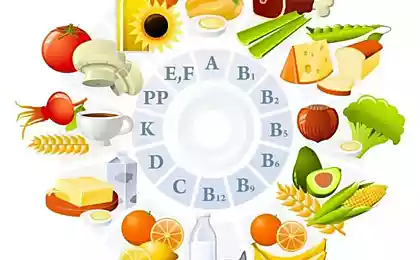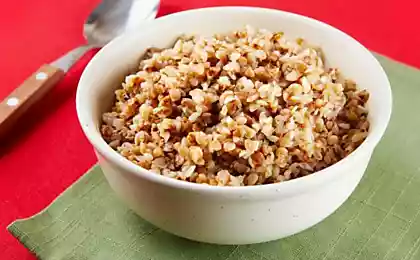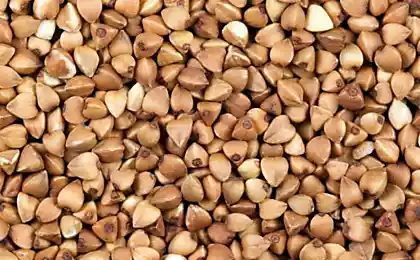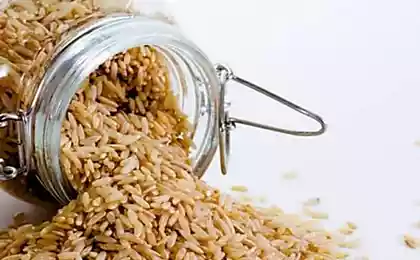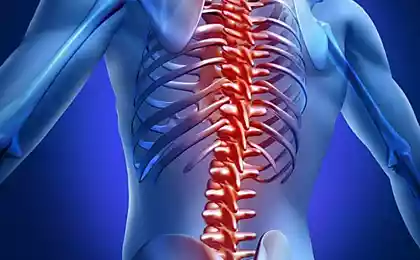225
A sensation! Potatoes are better for weight loss than buckwheat and rice
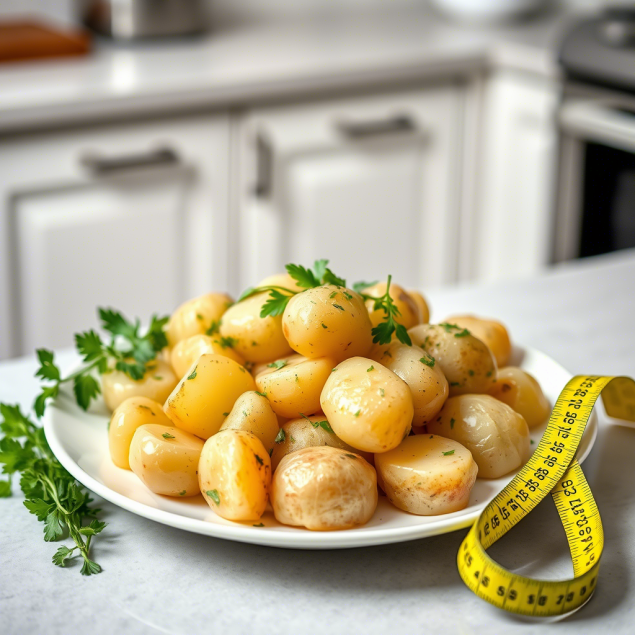
Potatoes can be your unexpected ally in the fight against excess weight
For decades, nutritionists have frightened us with starchy foods and urged us to exclude potatoes from the diet when losing weight. But the results of the latest research force to completely reconsider the role of this available root crop in a healthy diet. Science confirms that properly cooked potatoes not only do not prevent weight loss, but can become a more effective alternative to traditional dietary products - buckwheat and rice.
The Unexpected Truth About Potatoes and Weight Loss
Traditionally, it is believed that when losing weight, potatoes should be excluded from the diet due to the high content of starch. However, modern research refutes this myth. In fact, potatoes have a number of properties that make them ideal for those who want to lose weight.
Starch in potatoes has a special structure and affects the body differently depending on the method of cooking. Moreover, potatoes have a number of undeniable advantages over other popular dietary products such as buckwheat and rice.
Why are potatoes more effective than traditional “diet” foods?
Potatoes are often unfairly blacklisted for weight loss. However, this product has a number of advantages over buckwheat and rice:
- Higher saturation index (3 times higher than white bread)
- Lower calorie content (77 kcal per 100 g of boiled potatoes against 110 kcal in boiled buckwheat)
- Rich vitamin-mineral composition
- Universality in cooking
- Affordable price and all season
Starch in potatoes: an enemy or a friend for weight loss?
Starch in potatoes declared a real war many nutritionists. But is it as harmful as is commonly believed? Potato starch contains a significant amount of resistant starch, especially after cooling cooked potatoes. Such starch is not digested in the small intestine and is not absorbed by the body as usual carbohydrates. It works as a prebiotic, feeding beneficial bacteria in the gut.
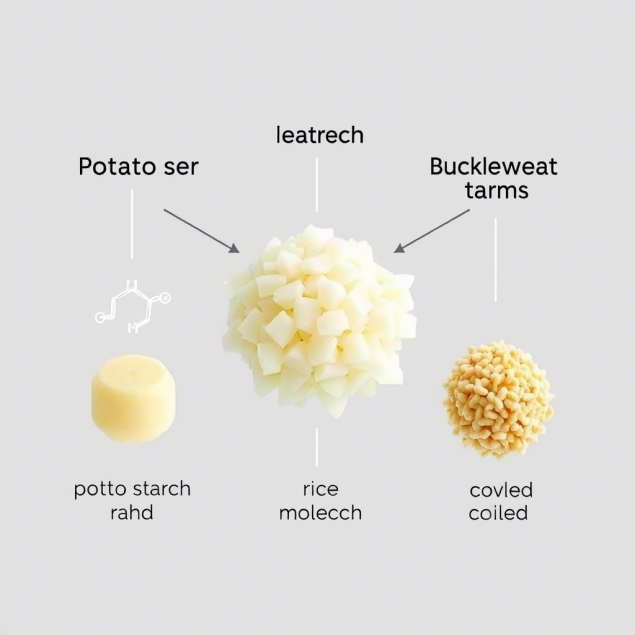
The structure of starch in potatoes changes after cooling, making it beneficial for the microbiome.
Studies show that resistant starch:
- Improves insulin sensitivity
- Reduces blood sugar levels
- Increases the feeling of satiety
- Promotes fat burning
- Reduces the number of calories obtained from food
Saturation index - the secret weapon of potatoes
In a study published in the European Journal of Clinical Nutrition, researchers ranked 38 common foods based on their ability to cause feelings of fullness. Potatoes took first place, ahead of fish, oatmeal, apples, beef, brown rice and even buckwheat. This means that eating a serving of potatoes will make you feel fuller for longer and less likely to snack.
Vitamins and minerals: the richness in every tuber
Many will be surprised to learn that potatoes are a treasure trove of nutrients. In terms of the content of some vitamins and minerals, it surpasses both buckwheat and rice.
Nutrient Potatoes (100 g) Buckwheat (100 g) Rice (100 g) Vitamin C19.7 mg0 mg0 mgCalium429 mg280 mg115 mgVitamin B60.2 mg0.12 mg0.05 mgFolic acid16 μg13 μg8 μgMagnesium231 mg25 mg
Especially important is the high content of vitamin C and potassium. Vitamin C not only supports immunity, but also participates in the synthesis of carnitine - a substance that accelerates the metabolism of fats. Potassium regulates the water balance in the body, preventing swelling and fluid retention, which is critical for weight loss.
According to a study by the University of Sydney, eating potatoes causes the most prolonged feeling of satiety of all carbohydrate products studied, which allows you to reduce the total calorie intake without feeling hungry.
Secrets of cooking potatoes for weight loss
The method of cooking potatoes directly affects its benefits in weight loss. Here are some proven methods to help you get the most out of it:
1. Cooling method
Boil the potatoes, then cool them in the refrigerator for at least 12 hours. This process increases the content of resistant starch 3-4 times. Chilled potatoes can be used in salads or warmed up before consumption – the beneficial properties of resistant starch will remain.
2. Steaming up
In this method, the maximum amount of vitamins and minerals is preserved in potatoes. Steamed potatoes can be seasoned with a small amount of olive oil and spices to improve the taste.
3. Burning in the peel
This method allows you to save more nutrients that are concentrated right under the skin. In addition, the baking process makes starch more resistant to digestion.

Different methods of cooking potatoes to preserve its dietary properties
Lifehack for maximum effect
Cook a large portion of potatoes at the beginning of the week, cool them and use them in various dishes for 3-4 days. This will not only increase the resistant starch content, it will also save you time.
Practical recommendations: how to include potatoes in the diet for weight loss
Despite all the benefits, potatoes still contain carbohydrates, and their consumption must be controlled. Here are some practical tips:
- Control the portions. The optimal portion is 100-150 g of the finished product (1-2 medium tubers).
- Combine correctly Combine potatoes with protein foods and vegetables rich in fiber.
- Choose your time. It is best to eat potatoes in the morning, when the metabolism is most active.
- Avoid harmful additives Mayonnaise, butter and fatty sauces can negate all the beneficial properties of potatoes.
- Diversify your diet Alternate potatoes with other sources of carbohydrates, such as legumes and whole grains.
Example menu for the day with potatoes for weight loss
Breakfast: Chilled potatoes (150 g), baked with rosemary, an omelet of two eggs and fresh vegetables.
Lunch: Chilled potato salad (100 g) with tuna, olive oil, greens and fresh vegetables.
Dinner: Baked chicken breast with vegetables and a small portion of potatoes steamed (100 g).
Research in Support of the Potato Diet
Scientists from the University of California conducted a 12-week study in which participants who included potatoes cooked in healthy ways showed better results in weight loss compared to the group who consumed an equivalent amount of rice and pasta.
Another study, published in the Journal of the American College of Nutrition, confirmed that a diet including moderate amounts of potatoes not only does not prevent weight loss, but also contributes to better satiety and more stable blood sugar levels.
It is important to remember
Potatoes become an undesirable product for weight loss only with improper cooking (fried deep, mashed with butter) or excessive consumption. By controlling portions and choosing the right cooking methods, you can make it a valuable ally in the fight against excess weight.
Potatoes deserve a second chance
It’s time to rethink your attitude to potatoes as the enemy of the slim figure. With the right approach, this affordable and nutritious product can become an effective tool for weight control, surpassing in many ways the traditional “diet” foods – rice and buckwheat.
A high saturation index, rich vitamin and mineral composition, the presence of resistant starch and versatility in cooking make potatoes an ideal choice for those who seek to lose weight without hunger and nutrient deficiencies.
Include potatoes in your diet wisely, following cooking and serving guidelines, and you will make sure that the diet can be not only effective, but also enjoyable!
Glossary of terms
Resistant starch
A type of starch that is not digested in the small intestine and functions as dietary fiber. Promotes the growth of beneficial bacteria in the intestine and improves metabolism.
Saturation index
An indicator that measures the ability of a product to cause and maintain a feeling of satiety. The higher the index, the longer the feeling of satiety persists after consuming the product.
Glycemic index (GI)
An indicator that reflects the rate of absorption of carbohydrates and their effect on blood sugar levels. Foods with low GI are slower to digest and do not cause sudden spikes in sugar.
Gut microbiome
The set of microorganisms that inhabit the intestine. A healthy microbiome plays an important role in metabolism, immunity, and even mental health.
Thermal effect of food
The amount of energy the body spends digesting, absorbing and storing nutrients. Different products have different thermal effects.
7 important things in a relationship that should not be a hindrance to happiness
Plinko Play for Real Money with Maximum Chances of Winning






